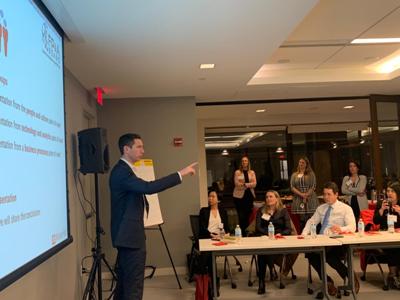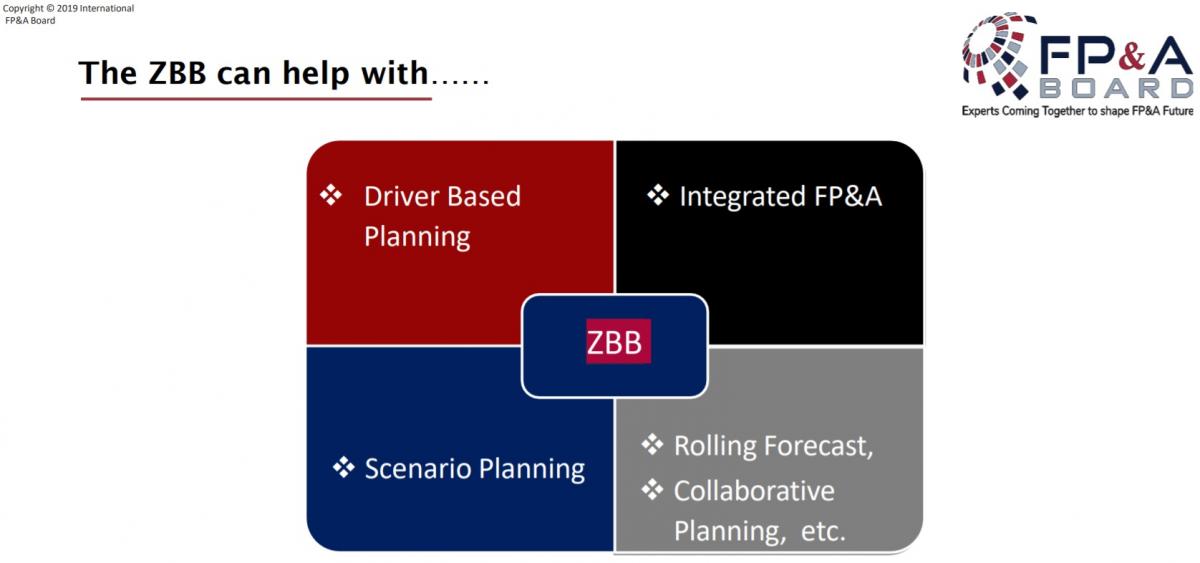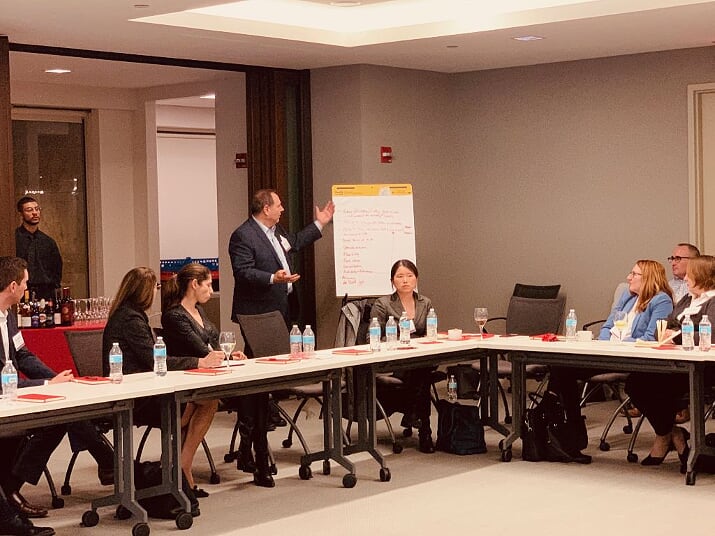 The sixth meeting of the Boston FP&A Board was held on February 27, 2020, at the offices of Robert Half and was sponsored by Robert Half and SAP. The purpose of the meeting was to address Zero Based Budgeting (ZBB).
The sixth meeting of the Boston FP&A Board was held on February 27, 2020, at the offices of Robert Half and was sponsored by Robert Half and SAP. The purpose of the meeting was to address Zero Based Budgeting (ZBB).
Introductions
The first item on the meeting’s agenda was introductions. The attendees were asked to introduce themselves, indicate whether they used ZBB and if so what was ZBB’s number one advantage as well as disadvantage. According to the attendees.
- 14 indicated that they have used ZBB
- 11 indicated that they have not used ZBB
- The number one advantage was accountability/justification
- The number one disadvantage was time-consuming which change coming in as a close second
What Is ZBB?
The second item on the meeting’s agenda was to answer the question of what ZBB is and here are the answers:
- Developing a budget from scratch.
- Disregard prior years’ activities.
- It is not about doing the same with fewer resources.
- Identifying activities and drivers that are vital to the business and focusing resources on those.
- Then think about how to best deliver them for our stakeholders.
- It is not about cost-cutting.
What Is New in ZBB in the Current Business Environment?
The third item on the meeting’s agenda was to address what is new in ZBB in the current business environment and here are the findings:
- Applied to items on the balance sheet as well as expenses
- Method of identifying drivers for Driver Based Planning
- Help to completely rethink the FP&A, targets, and incentive processes
- Collective exercise e.g. improved business partnering
- If integrated with strategy, helps to facilitate growth
- Modern technology makes it easy
What Can ZBB Help with?
The fourth item on the meeting’s agenda was to answer the question of what ZBB can help with and according to the meeting’s presenter Larysa Melnychuk, Founder of the International FP&A Board, ZBB can help with
- Driver Based Planning
- Integrated FP&A
- Scenario Planning
- Rolling Forecasts, Collaborative Planning, etc.

Case Studies
The fifth item on the meeting’s agenda was case studies. Two companies were used in this segment. The first company was Kraft Heinz and the second company was Coca Cola.
Here are the takeaways from the Kraft Heinz case study.
- ZBB was introduced globally in 2015
- In February 2019 the company’s share price dropped 29% in one day despite ZBB usage in technology investments and controlling costs
- Also in 2019 the company would increase brand support that would be funded by ZBB savings
- The company’s cost-focused strategy also gave way to a high-pressure, anxious environment
Here are the takeaways from the Coca Cola case study.
- ZBB was used between 2014 and 2019
- The company’s focus was on global cost-cutting and cost standardization
- The company now calls ZBB “Zero Based Work”
Group Work
The next item on the meeting’s agenda was group work. Three groups were set up in order to discuss ZBB from various points of view. The points of view were
- People and Culture
- Technology and Analytics
- Business Processes
Comments from the People and Culture Point of View
- Buy in, i.e. “sell the way”
- Senior leadership
- Incentives, short-term and long-term
- Accountability, silo vs. centralized
- Narrative/Branding
- Dictate vs. Empower
Comments from the Technology and Analytics Point of View
- Key drivers of the business
- Ability to assign attributes of drivers
- Ability to have the level of detail you need
- Single source of truth
- Standardization
- Flexibility
- Ease of use
- Consolidation
- Scalability and performance
- Accuracy
- Data Governance
Comments about Business Processes
- A clear idea of strategy – transparency, clear messages
- Alignment
- Agility, e.g. flexible processes
- A new set of eyes/fresh ideas
Conclusion
The final item on the meeting’s agenda was a conclusion. The conclusion provided a number of takeaways. Here are the takeaways.
- Implementing ZBB is tough but sustaining it is much harder.
- Without senior management, support ZBB will not yield its full results.
- ZBB is a great method to create a lean organization but it is not easy to find the right balance between cuts and investments.
- Most staff members do not like ZBB and it may lead to increased attrition.

This was the third Boston FP&A Board meeting I attended and my takeaway was the amount of energy in the meeting. The attendees displayed an energy that indicated an interest in ZBB. Based on my observations ZBB generates opinions that make ZBB important in the progress of FP&A. It is the importance that makes board meetings like those in Boston and other locations worthwhile to attend.
I would like to thank the attendees as well as the sponsors for engaging in an enjoyable and informative meeting.







